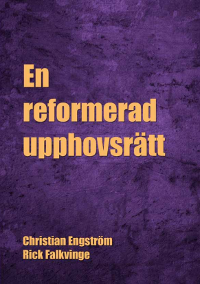The European institutions need to become a lot more transparent, if they want to have any chance of gaining the confidence of increasingly eurosceptic citizens. The European Parliament is by far the best of the three institutions, and much more open and transparent than the Council or the Commission.
But the Parliament could improve, too.
When we vote in plenary in the European Parliament, we have an electronic voting system that is used to make ”roll call votes” (RCV). It works just as you would expect. A big screen tells you which item you are voting at the moment, and you have a few seconds to press one of the three buttons for yes, no, or abstain.
When the vote has been closed, the big screen displays the votes cast, both in numbers and with little green, red or white dots representing the individual members (MEPs) who took part in the vote. Afterwards, the information about how each MEP voted is made public, and there are sites like ItsYourParliament.eu and VoteWatch.eu where you can check how individual MEP voted.
It is a perfectly good system, but there is one problem.
For most of our votes, the electronic system is not used. Instead, we vote by raising our hands the second the President (speaker) says ”in favour”, ”against”, or ”abstentions”. The President then makes a judgement as to whether it was a yes or a no, and calls out his decision.
If he is uncertain, he can call for an ”electronic check”. We then redo the vote using the electronic system.
If an MEP feels that the President may have misjudged the outcome of a vote done by show of hands, he can demand an electronic check by shouting ”Check!” when the President has made his call. As I understand the Rules of Procedure for the Parliament, a check should always be carried out if a MEP requests it, but frequently the President ignores calls of ”Check!” from the floor, if he feels confident that he was right in his call.
After an electronic check the number of votes in favour, against, and abstentions are displayed on the big screen, but not the little dots representing the individual MEPs.
No data on how the individual MEPs voted is saved in these normal votes, regardless of whether they are completed by show of hands (where it would be impossible) or electronic check (where the data exists, but is discarded).
In the majority of votes that are not roll call votes, neither citizens nor other MEPs can check how a particular MEP voted.
I think all votes in plenary in the European Parliament should be carried out as roll call votes (except possibly minor points of order). This is a way to increase the transparency of the Parliament in a simple and straight-forward way, that can be implemented immediately and does not even cost any money. The electronic voting system is already there and has been paid for, whether we use it or not.
The standard argument against having all votes as RCVs is that it would take more time. I seriously doubt that this is true. The show-of-hands procedure is perhaps slightly quicker when everything goes smoothly, but if you add the time that the (fairly frequent) calls for electronic checks take, it often feels like it would have been quicker if we had done it all by roll call votes from the start.
There was a discussion in plenary in Strasbourg this week that resulted in one member asking for all the votes of a (random) report to be carried out as RCVs. The President granted the request, and it did not feel like the vote took any longer than it would have if we had voted the way we normally do.
And even if it were to be shown that it does in fact take slightly longer on average, I think we should still use roll call votes all the time. The Swedish national parliament has done so since it first got an automatic voting system, and I believe it is the same in national parliaments more or less everywhere.
MEPs are elected to represent the people who voted for them. Of course the voters should have the possibility to check how their representatives are doing their job.
To have all votes in plenary as roll call votes is a straight-forward reform to increase transparency in a concrete way. The European Parliament can implement at no cost and without delay, it it wants to.
I think we should.
…………
Tags: piratpartiet, eu, politik, informationspolitik

 Christian Engström, former Member of the European Parliament 2009-2014 for Piratpartiet, Sweden
Christian Engström, former Member of the European Parliament 2009-2014 for Piratpartiet, Sweden




Well written, I agree completely.
Kommentar av nejtillpirater — 13 maj 2011 @ 17:50
Nejtillpirater: That must be the first time!
Kommentar av Olle — 13 maj 2011 @ 19:28
@Olle
Nope
Kommentar av nejtillpirater — 13 maj 2011 @ 21:46
Seriously? WTF?
Kommentar av anonymous — 14 maj 2011 @ 10:28
It’s interesting to see that the very same pattern emerges every single time. The people in power creates systems, regulations, and laws for regular people and themselves to follow, only to end up nonchalantly ignoring them, with the only difference here being that regular people will get punished whereas these people instead enjoys yet another skyrocketing salary increase.
Kommentar av RunByElites — 14 maj 2011 @ 11:09
Only electors should be allowed to vote anonymously, because the weak are protected from the wrath of the powerful.
The elected, and thus powerful, should not conceal their choices from the public. Not even from other powerful, because that is what we give them power for… to be able to stand the wrath of those, if need be, for us.
The only thing they might probably still want to be kept hidden… is the fact that many of their choices do not benefit the people that give them their power, but those others they are paid not to fear.
Kommentar av NingúnOtro — 17 maj 2011 @ 15:12
Well written indeed. As far as i understand, not even the EU bureaucrats themselves are convinced that EU works. The bureaucracy has simply grown too big, too fast, resulting in a command structure run mainly by inertia.
Kommentar av Scary Devil Monastery — 19 maj 2011 @ 13:31
The President has a much more powerful role in the voting procedure than what I would have expected.
Rule 165:2 ”If the President decides that the result is doubtful, a fresh vote shall be taken using the electronic voting system and, if the latter is not working, by sitting and standing. ”
The exceptions would appear to be
Rule 166: When voting on any proposal for a legislative act, whether by way of a single and/or final vote, Parliament shall vote by roll call using the electronic voting system.”
Rule 167:1 ”In addition to the cases provided for under Rules 106(4), 107(5) and 166, the vote shall be taken by roll call if this is requested in writing by a political group or at least 40 Members the evening before the vote unless the President sets a different deadline. ”
So at least final votes for a legislative act would be roll call votes.
Also, which is surprising to me, the President has a powerful role regarding points of order
Rule 173:4 ”The President shall take an immediate decision on points of order in accordance with the Rules of Procedure and shall announce it immediately after the point of order has been raised. No vote shall be taken on the President’s decision.”
I would have expected that the Parliament itself would rule on points of orders. Why would it give up this power to the president?
Anyway, I think all votes carried out with the electronic device should be roll call votes. Any difference would be purely technical and should be dealt with. This also goes to the security and integrity for members. If you cannot check the system afterwards, then how can you trust the system to deliver correct results?
However, I do not think it is necessary to mandate roll call votes. But the rules of procedure should be amended so that every member can request a roll call vote.
I suggest that your political group begin utilizing the option of Rule 167:1 to ask for roll call votes for every planned vote.
Kommentar av Johan Tjäder — 24 maj 2011 @ 17:06